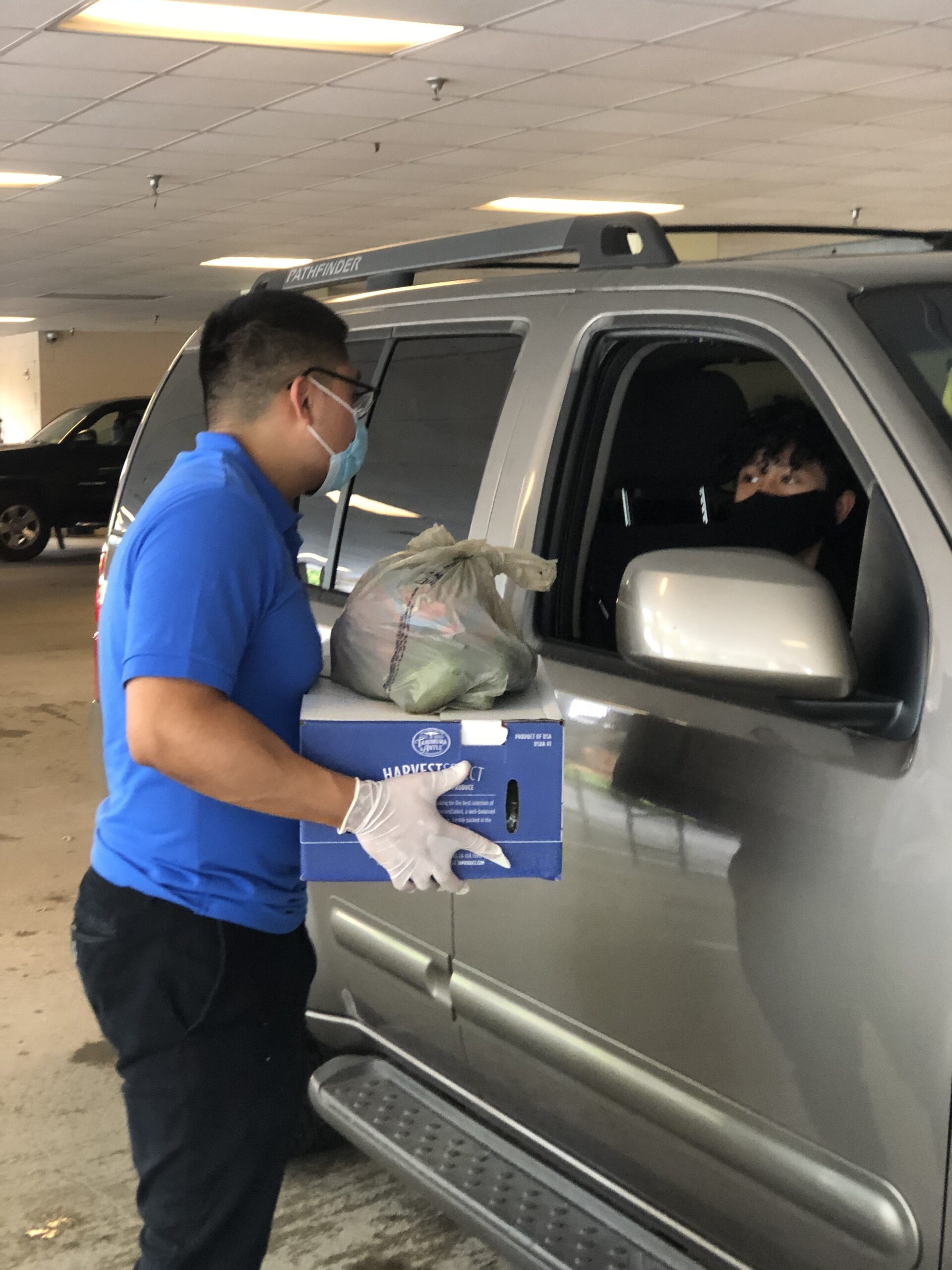Hispanic And Latino Community Hit Hard By Job Losses in Atlanta, CARES Act Exclusions

The Atlanta Latin American Association, a nonprofit that has served its metro community for nearly 50 years, recently held a food drive.
Courtesy of Latin American Association
Updated Thursday at 9:09 a.m.
While Georgia’s unemployment numbers have reached an all-time high, Hispanic and Latino workers are especially feeling the brunt of job loss.
The Bureau of Labor Statistics reports that the unemployment rate for Hispanics rose to 18.9% this month. That translates to more than 4 million – or nearly one in five – Hispanics who are unemployed.
Aixa Pascual is managing director of advocacy for the Atlanta Latin American Association, a nonprofit that has served its metro community for nearly 50 years. Pascual said in the past, LAA has provided rental assistance to Atlanta families through grants and donations. For the first few months of the pandemic, she said, those donations were drying up. Families that were typically getting about $400 dollars each had their assistance cut in half.
“Thanks to recent grants and donations we’ve received, we are now able to give between $400 and $1,200 to many families,” Pascual said.
She told WABE that in the first month of the pandemic, LAA received about 800 calls – most for rental assistance. Just this month, Pascual said breadwinners in 350 families served by LAA no longer have a source of income – and during a few recent food drives, families showed up three hours early to stand in lines.
Pascual spoke with “Morning Edition” host Lisa Rayam about how Georgia’s Hispanic and Latino families are part of a nationwide exclusion from the $2 trillion federal Coronavirus Aid, Relief, and Economic Security, or CARES Act.
“Our communities tend to live at the margins of society. Less likely to be educated, more likely to be poor and uninsured. This crisis has amplified these gaps in society,” Pascual said.
The CARES Act provides stimulus checks to only those who file taxes using a Social Security number, and not the individual taxpayer identification number used by millions of undocumented immigrants.
Georgia is considered a developing state when it comes to the Hispanic and Latino community, said Santiago Marquez, President of the state’s Hispanic Chamber of Commerce.
Marquez told WABE the majority of approximately 1,300 Hispanic-owned businesses under the HCC are below a million in revenue.
He also said most are in the metro Atlanta area and lack a stable, long-term business plan.
“Unlike Texas, Florida, California, New York, states where you have had Hispanics living in those states for generations, Georgia is now turning the corner on the first generation,” Marquez said.
He said that dynamic means most of the businesses registered under the Georgia chamber are owned by foreign-born, first-generation residents.
“These are immigrant-led businesses. When you throw that all into the mix, it means that we have micro-businesses that are members of our chamber,” Marquez said.
Most of the businesses under the HCC, Marquez said, don’t have a physical location open during the pandemic, even for take-out or delivery services.
“We heard from a couple of businesses that closed their shop completely and had to lay everybody off. I don’t know any restaurants that didn’t have to lay somebody off,” Marquez said.








